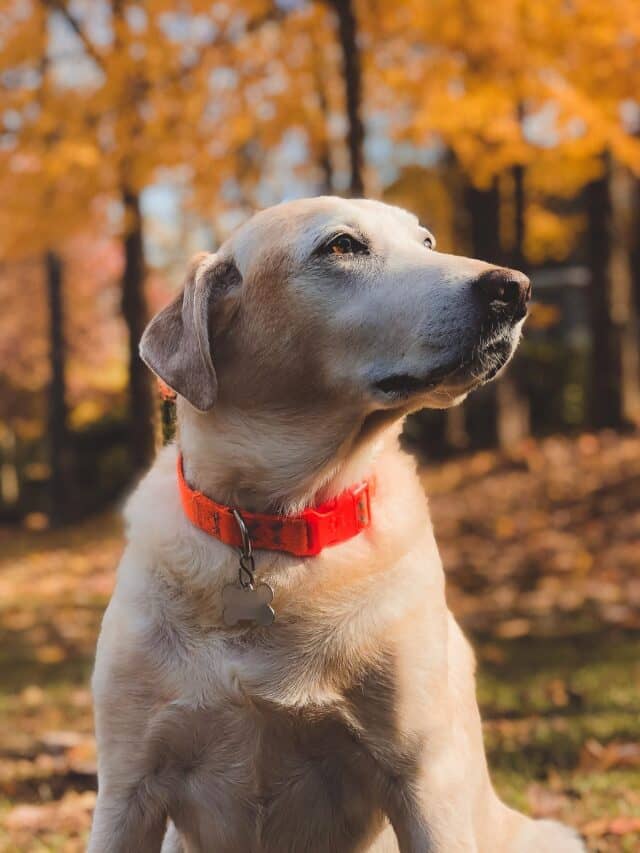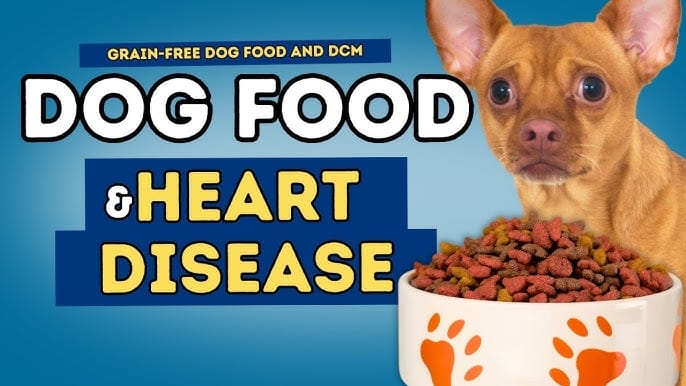🥩 Grain-Free = Heart-Free? Let’s Talk Science, Not Scare.
Grain-free dog food exploded in popularity faster than a Golden Retriever on zoomies. Marketed as the “healthier, ancestral diet,” these formulas replaced grains like wheat and corn with ingredients such as lentils, peas, chickpeas, and potatoes. Sounds healthy, right? Well… not so fast. Over the past few years, vets and the U.S. Food and Drug Administration (FDA) have been waving a red flag: a possible link between grain-free diets and a life-threatening condition called canine dilated cardiomyopathy (DCM).
💔 What is DCM (Dilated Cardiomyopathy)?
DCM is a heart condition where the heart muscle becomes enlarged and weak, making it difficult for the heart to pump blood efficiently. It’s been seen most often in large breeds like Dobermans, Boxers, and Great Danes, but in the last decade, vets have noticed an uptick in DCM in breeds not genetically predisposed, such as Golden Retrievers, Mini Schnauzers, and even mixed breeds.
🚨 So, What’s the Deal with Grain-Free?
Back in 2018, the FDA opened an investigation after receiving hundreds of reports of DCM in dogs that were eating boutique or grain-free foods—many of which used legumes as primary ingredients.
🧪 Key Findings:
- 90% of the diets were grain-free.
- 93% contained peas or lentils.
- Some dogs recovered when switched back to traditional grain-inclusive diets and started on heart meds and taurine supplements.
While no single ingredient has been officially blamed, the spotlight remains firmly on legume-heavy, grain-free diets.
🧠 But Why Would Legumes Be a Problem?
Good question. It’s not that peas or lentils are toxic. The issue seems to be nutritional imbalances:
- Taurine Deficiency: Taurine is an amino acid critical for heart function. While dogs can synthesize it themselves, some breeds may require dietary supplementation—or may fail to absorb it properly from high-fiber, legume-based foods.
- Fiber Overload: Excessive fiber from legumes might interfere with nutrient absorption.
- Unknown Interactions: Some theories suggest anti-nutritional factors (like phytates) in legumes might be at play.
Bottom line? It’s not about one bad ingredient—it’s about overall nutritional formulation.
📋 Brands Named in the Investigation (as of FDA’s 2019 report):
These grain-free brands were most commonly reported in DCM cases:
- Acana
- Zignature
- Taste of the Wild
- 4Health
- Earthborn Holistic
- Blue Buffalo
- Fromm
- Merrick
- Orijen
- Nutro
- Natural Balance
- …and others
Note: This list doesn’t mean the brands are “bad” or recalled. It just means they were frequently fed to affected dogs.
🦴 Should You Ditch Grain-Free Completely?
If your dog:
- Is thriving on their grain-free food
- Has no breed predisposition to DCM
- Is being monitored by a vet regularly
…you don’t need to panic. But, if your pup’s on grain-free just because a TV ad told you grains are evil? Time for a rethink.
👉 Most dogs do just fine with grains like rice, barley, and oats. They’re not “fillers”—they’re energy sources.
🩺 Vet Recommendations:
- 🥣 Choose well-researched brands with veterinary nutritionists on staff (e.g., Royal Canin, Hill’s, Purina Pro Plan).
- ❤️ Consider heart screenings for dogs on long-term grain-free diets.
- 💊 Ask about taurine supplementation, especially if you own a breed like Golden Retrievers or Cocker Spaniels.
- 🔄 When in doubt, rotate diets and don’t obsess over one brand or formula forever.
📣 Final Bark:
The grain-free trend might’ve started with good intentions, but it’s a classic case of marketing running faster than science. DCM is serious, but it’s also preventable in many cases. So talk to your vet, feed smart, and remember: just because wolves didn’t eat rice doesn’t mean your couch-warming Labrador shouldn’t.

Dr. Suranjan Sarkar is a veterinarian and also a writer and editor for both print and digital with a love for travel, animal, and architecture. Much of his writing has focused on human and animal health and welfare. A life-long pet owner, His two favorite canine quotes are, “Be the kind of person your dog thinks you are,” and “Dogs communicate their feelings honestly and directly. There’s no hidden agenda or manipulation.”










